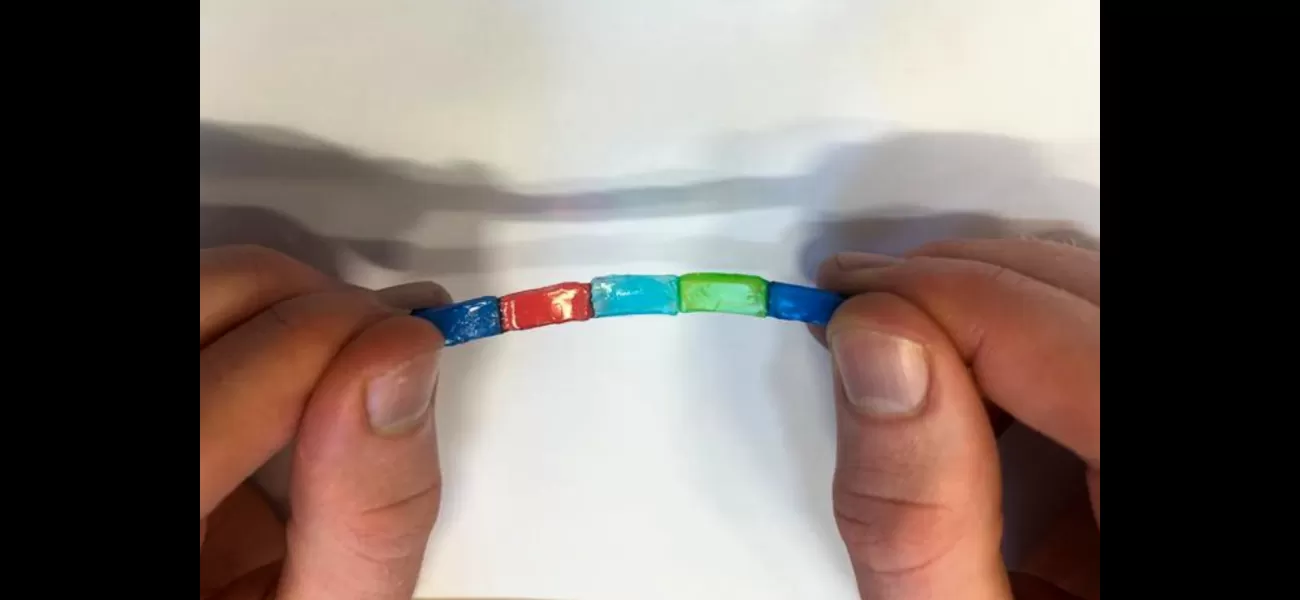Electric eels helped develop epilepsy treatment.
New device may help with epileptic seizures, according to developers.
July 21st 2024.

A team of scientists from the University of Cambridge has made a groundbreaking discovery that could potentially revolutionize the treatment of certain neurological conditions. Inspired by the slippery nature of underwater organisms, the team has developed a new device that could change the way we administer drugs and treat conditions like epilepsy.
Their idea came after studying the muscle cells of electric eels, which use jelly-like materials to conduct electricity while remaining soft and flexible. This led the team to believe that these materials could be used to create "self-healing batteries" that could potentially be implanted in the human brain.
Lead researcher Stephen O'Neill explains, "It's always been a challenge to design a material that is both stretchable and conductive, as these properties often contradict each other. But the jelly batteries we have developed can be stretched up to ten times their original size without losing any conductivity."
The success of this research lies in the creation of a new material that maintains its electric conductivity even when stretched. While this could have obvious applications in wearable electrical devices, the team is also exploring the potential of using these batteries in subdermal implants that can be molded into living human tissue.
Co-researcher Oren Scherman states, "We can customize the mechanical properties of these hydrogels to match human tissue, making them less likely to be rejected by the body or cause scar tissue build-up compared to traditional metal implants."
The team is currently conducting tests on living organisms to determine the safety and effectiveness of these batteries in humans. Their findings have been published alongside a similar study at China's Nanjing University, where researchers have been working on a malleable lithium-ion battery that could be used in in-body medical monitors to track vital signs.
Overall, this groundbreaking research has opened up new possibilities in the field of medical technology and has the potential to greatly improve the lives of those suffering from neurological conditions. The team at the University of Cambridge is excited to continue their work and see where this discovery may lead in the future.
Their idea came after studying the muscle cells of electric eels, which use jelly-like materials to conduct electricity while remaining soft and flexible. This led the team to believe that these materials could be used to create "self-healing batteries" that could potentially be implanted in the human brain.
Lead researcher Stephen O'Neill explains, "It's always been a challenge to design a material that is both stretchable and conductive, as these properties often contradict each other. But the jelly batteries we have developed can be stretched up to ten times their original size without losing any conductivity."
The success of this research lies in the creation of a new material that maintains its electric conductivity even when stretched. While this could have obvious applications in wearable electrical devices, the team is also exploring the potential of using these batteries in subdermal implants that can be molded into living human tissue.
Co-researcher Oren Scherman states, "We can customize the mechanical properties of these hydrogels to match human tissue, making them less likely to be rejected by the body or cause scar tissue build-up compared to traditional metal implants."
The team is currently conducting tests on living organisms to determine the safety and effectiveness of these batteries in humans. Their findings have been published alongside a similar study at China's Nanjing University, where researchers have been working on a malleable lithium-ion battery that could be used in in-body medical monitors to track vital signs.
Overall, this groundbreaking research has opened up new possibilities in the field of medical technology and has the potential to greatly improve the lives of those suffering from neurological conditions. The team at the University of Cambridge is excited to continue their work and see where this discovery may lead in the future.
[This article has been trending online recently and has been generated with AI. Your feed is customized.]
[Generative AI is experimental.]
0
0
Submit Comment





